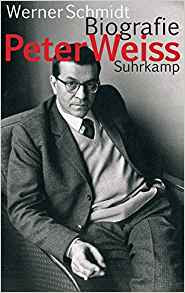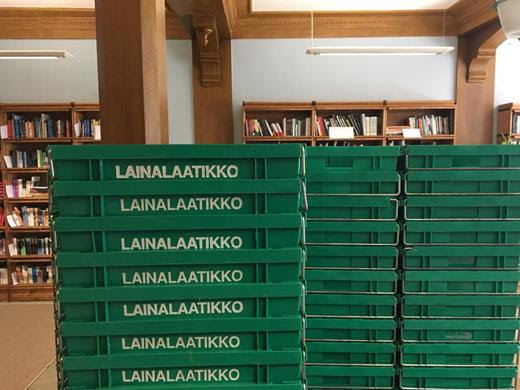
I'm looking forward to reading Werner Schmidt's biography of Peter Weiss, which appeared almost a year ago.
The story is written in archaic Finnish, and the character Aalo’s own voice is not represented, which is true to the time. Through use of this literary technique, Kallas found a clever way to demonstrate the way female perspectives were excluded in that era. Her method is unique in Finnish literature and she is a unique author: her main body of work is based on Estonian folklore and its focus is on women’s position in the world of men.An Oksanen-Kallas linkup would be most welcome.
 |
| Gösta Ågren |
It was the first translation of this novel in to English and is in many ways still the most striking. Like Hamsun in Norwegian, Worster writes in a way that is old-fashioned, from a bygone age, in English. I wanted to celebrate those turns of phrase, the spelling conventions, the simplicity of his achievement for a new audience. For me personally, I remember reading the novel late into the night for the first time – the Norwegian original – and being by turns delighted, baffled, intrigued, astounded and utterly enamoured by this visionary writer and his poetic, ‘Danishified’, sparkling and obscure language. So, on a personal level, it feels such a culmination of a long-held dream to contribute to a new edition.
‘The Return of the Divine Mary is a wonderfully eccentric, enchanting read. Traces of William Blake mingle with undertones of Bulgakov, Eco and Kafka to create a fast-paced, unpredictable drama constructed on an intriguing premise: What would the Virgin Mary be like as a young woman in modern society, and how would her contemporaries receive her?’
Within a couple of weeks the Ruskeat Tytöt blog had attracted plenty of attention. It was picked up by other media and started to be cited in the major newspapers and magazines in Finland, both in good and bad tones.
Ruskeat Tytöt won various blog awards and received a lot of praise, but at the same time every other reader and/or (white) cultural correspondent, writer, theatre person, and artist had an opinion on how I should talk about racism and what should be considered “inoffensive”. For instance, when people at work touched my hair without asking and compared it to animal fur – that was simply friendly curiosity about difference, which I should understand and allow.
Of course I also got, and get, anonymous and signed hate mail and people hoping I would be raped or killed. There are still a lot of readers who are in the business of publicly belittling our experience and who change the subject when we raise the problems we face.
But for the most part the debate has been positive since the start, with an enthusiasm to learn and listen, and it has involved racialised people themselves as well as their white nearest and dearest whom the discussions undoubtedly address.
FILI moves to new offices |
 |
FILI is moving to a new office suite in the House of Nobility (Ritarihuone) building on 15 May 2017.
Our new offices will be upstairs from our previous location, and our street address will change: the entrance will be at Hallituskatu 2 B. To enter, ring the doorbell. Our new offices are on the second floor.
|
It's an absolutely unique insight into Iceland's culture, mentality, and spirit - a country where the short story is as valued as the sagas.See also in this blog: Out of the Blue
In part of an address originally given at European Literature Night, hosted by the British Library, the Royal Society of Literature and EUNIC, on the future of European writing, Kennedy passionately argued that writers have a responsibility “to resist” and to “say more and more often” on behalf of all “citizens of Nowhere”. Prime minister Theresa May used the phrase at the Conservative Party Conference in October, when she equated being a “citizen of the world” with being “a citizen of nowhere”. It refers to the poor, the sick, the old, the refugees, the immigrants, the non-white, the non-Christian and the non-compliant, Kennedy said.
Kennedy said British publishing’s aversion to risk meant it currently had “little appetite” for foreign works, especially since the abolition of the Net Book Agreement which fixed prices for books, which she lamented had led publishers “into a territory of simple calculations, of profit and loss”. In the UK, translators are “particularly poorly rewarded”, she added, and their positions “always insecure” - a state of affairs that limits the range of literature UK readers are exposed to.
Leaving Finland, I wondered how this country ranks so high in the international happiness ratings, a testament to the forbearance of its people. A stallholder who sold me cinnamon buns told me her bipolar husband struggles desperately through the dark winters. I couldn’t be cheerful in a country where lakes are still frozen in May, there’s little to do but skiing and saunas, where the landscape is unremittingly flat and empty and the architecture (thanks to the retreating Nazis burning every old building) is grim and utilitarian.
But they are strong, calm and silent. Studies show Finns utter the fewest words of any western nation, particularly the men. Which must be maddening in a husband, but in a taxi driver, when you’re tired and empty of small talk, is blessed thing.I must say I agree about the silence -- it's been a while since I heard anything from Finland. Hope all the people at FILI are well and busy as usual.
My own feeling is that the problem is less difficult than everyone pretends; that it surely would not be impossible to bring together editor, translator, and, say, an expert in translation from this or that language to establish how demanding a text is, how much time will be involved in translating it, and what would be a reasonable payment for doing so. Perhaps it is time for translators and translators’ associations to focus on putting such arrangements in place, without getting bogged down in the vexed question of authorship and royalties.